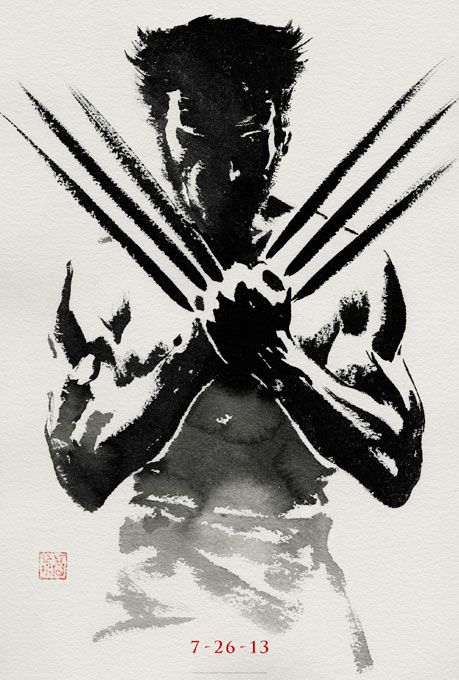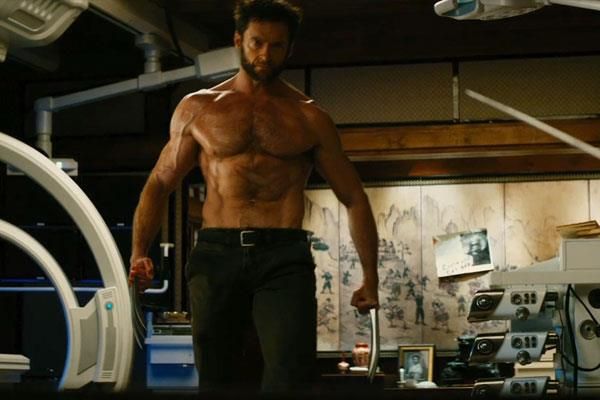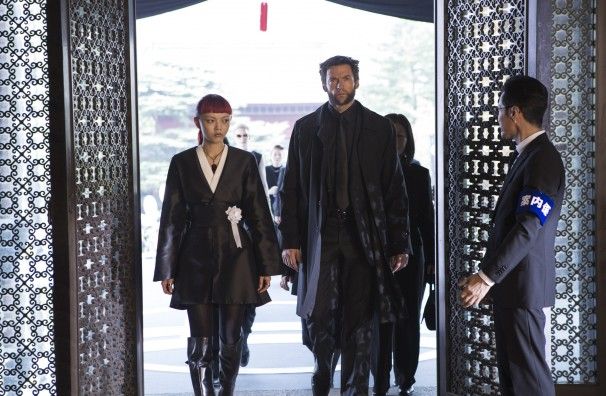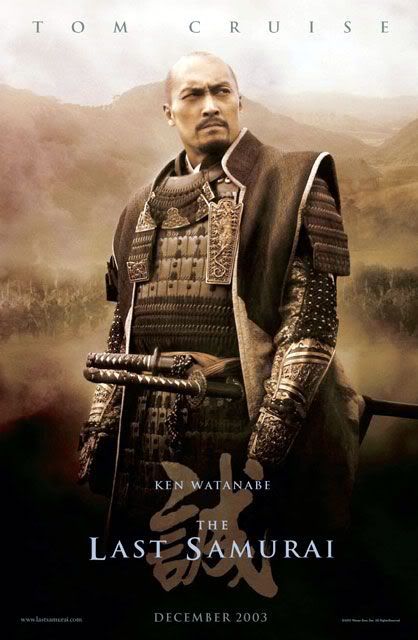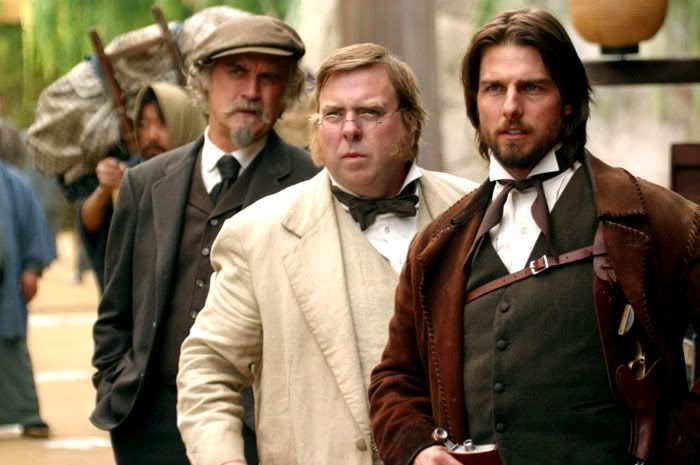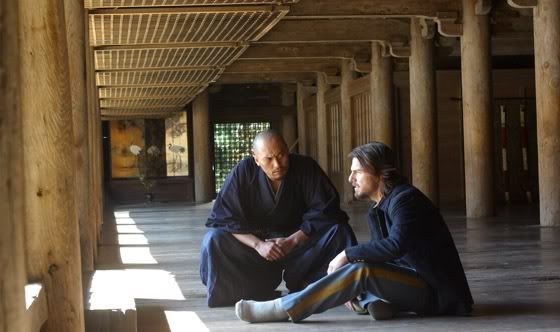Set in feudal Japan, this story is not for the faint of heart.
Until her release from the Hell of the Vast Cold countless days after the night of her murder, Lady Takahashi Makoto did not fully grasp the concept of cosmic balance and the role of akuma, or demons, within it. On that night she died, as she applied the hairpins that made her black tresses an immaculate aspect of her beauty, her focus was more on her boredom and disgust than on things beyond the ken of mortals. As she always did when dealing with her husband or his sycophantic subordinates, she hid her seething anger and abyssal loneliness behind the mask of powder and paint she spent hours applying each morning. As her husband, Lord Takahashi, discussed with those fattened generals plans to sweep down upon the forces of the young and powerful Nobunaga Oda, and then over the whole of Japan, she found it more difficult than usual to ignore the emptiness that was the throbbing echo of his rough violations of her supple and bruised body.
One couldn’t even call it lovemaking, she reflected. It had been her hope, when dapper men took her away and left a substantial dowry in her place for her parents, that her husband in this arrangement would be kind, which would have made her duty to be an obedient wife much easier. But Takahashi was anything but kind. Beside the physical abuse, he often taunted her with a life she could have known, pressing her into service like any common girl rather than allowing her to help in running the household.
This hurt more than the blows from his hand or the curses murmured at her in the throes of his passion. The women in her family before her were not so abused. They learned martial arts, they married men who saw them as equals, they even inherited property, and here she was shuffling about serving tea with mute obedience. Takahashi enjoyed this, using and abusing her in these various ways, and it had been like this every day since her arrival five insufferable months ago.
“A hunter’s moon tonight,” one of the generals said, the predatory word rousing Makoto from her dark reverie. “An auspicious omen for our endeavor.”
“I agree,” said another. “But that much light on this night bothers me. What if our respective lords see their armies leaving?”
Makoto tried not to pay any mind to what they were saying. She went about her duties, cleaning up plates from their meal and pouring fresh cups of tea. The generals pretended like she didn’t exist, as Takahashi had instructed them on numerous occasions. This was the way she and every other woman in the castle was treated: like an animal or an object, something unworthy of notice, devoid of honor. It burned under Makoto’s skin, but she still remembered the way he broke her arm after her first protest four months ago. She was not eager to repeat that experience. The bruises and soreness every morning after he came to her were enough.
“Do not worry about your lords,” Takahashi hissed. “When the dawn comes, your secret blood-oaths to me will bear the fruit you each desire. And do not worry about Oda. That, too, is taken care of.”
As he spoke, the doors of the hall flew open. Makoto looked to the sound, but saw not who opened them. It couldn’t have been the samurai walking in, for his arms remained at his sides, as relaxed as his measured strides. Watching him, she knew he was a predator, and she could almost smell the thick and exotic scent of blood on him. His hair, black as his lacquered armor, trailed behind him in a long thin queue like ink from a brush.
Then his eyes turned to her. Pale blue, the blue of ice on a river at dawn, they settled on hers and did not stray to her curvaceous form, paid no attention to her finery. Makoto felt as if her painted mask was melting, her clothing burning away, and every bit of her being lay exposed to him, giddiness and terror both gnawing at her heart.
“Ah. The assassin with no name.”
The nasal hiss of her husband brought Makoto back to reality. She caught her breath, wondering why she suddenly felt so warm.
“You are here for the map?”
“And a meal. Perhaps a bath.” His voice was a whisper, yet Makoto heard him clearly across the hall. Takahashi smiled thinly.
“Yes. Of course. My wife will see to your needs while we finalize our battle-plans. Then I will tell you how you’ll be my tekken; yes, my fist.”
Takahashi was full of his plans, and himself, moreso now than ever before. It didn’t concern him in the slightest how unsavory it was to send his wife off with a strange man, endangering her honor. To him, she was just another tool to be used, abused or discarded as he saw fit. Every time he had her serving tea to his gathering of traitors, every guest she guided alone through the castle was another sharp blow to her soul as damaging as his fists. Yet, through her seething hatred, she felt the eyes of the man in black boring into the back of her neck.
“Do you desire to eat or bathe first?” she finally managed.
“My desires are not quite what you think,” he whispered in reply. “Instead, I ask you yours. What do you desire?”
The frankness of his manner, and the complete lack of fear in his voice as he asked such a thing of another man’s wife, let alone the one of the likes of Lord Takahashi, left Makoto speechless. Then a wave of melancholy and sadness washed over her in a dark tide and her eyes fluttered shut as she surrendered to it, her strength gone like sakura petals on the wind.
“Freedom.”
“Not an uncommon desire. What makes yours special?”
“You’ve met my husband.”
“I have.”
“Then you know why.”
“He is ambitious. And powerful.”
“Things any commoner could tell you, with a voice full of fear.”
“He is more than that,” the wandering swordsman continued. “His lust and greed are exceeded only by his pride. And those generals with him are traitors.” His words caused heat to rise to her face again. She had no idea how he knew these things. Yet he continued, showing a peculiar insight that was perhaps fueled by the same scrutiny igniting her passion and her dread. “He doesn’t beat you out of anger or insecurity. He does it because he can, and because he enjoys causing you pain.”
They stepped out into the open air, and she turned her eyes to him in wonder. His face was downcast, shadows falling over it like black curtains. He stopped walking, turning to face out across the courtyard. The overhang above them kept off the first few drops of rain, and the wooden floor under their feet seemed less substantial to Makoto for some reason. She shook her head, trying to seize control of her emotions.
You have only known him a few moments, woman, she told herself.
Yet, he had spoken barely a word to her husband, and he instantly knew the heart and soul of that evil man. And when his eyes turned to her, she felt it again. She felt her breath shorten, the sensation of exposure, of revelation, of vulnerability and, strangely, desire.
“How do you know these things?” she ventured, halting in her walk.
He was silent. He turned his gaze from her, his face a taut mask of pain and sorrow. He walked further into the darkness away from her, and turned over his shoulder to address her in his audible whisper.
“Tonight. You will have your freedom.”
The words sank into her belly like a hot blade, the sensation oozing down her thighs and making her knees weak. She doubled over and struggled to grab the wall, moaning softly. What did this mean? How could she feel this way? Sick, yet enthralled and exhilarated all at once? Desperate wishes and unspoken prayers, seemingly about to be answered in the person of this dark assassin, gave fuel to a flame of desperate hope that fluttered in the breeze of a nameless and creeping fear that crouched on the edge of Makoto’s soul like a stalking panther anticipating the right moment in which to pounce.
Makoto gathered herself best she could. She had to maintain composure. It was unseemly for her to act thus. She wanted time to consider these feelings as best she could. The night air chilling her skin seemed to murmur in her ear that what she had set into motion now could not be undone, and reinforced her sensation of falling.
The alarms began to sound, whistles and bells madly making themselves heard. Makoto looked around, confused. Time had lost all meaning in the face of her desires. She gathered up the loose folds of her kimono and walked as best she could towards the sounds.
Men in armor ran past her, swords, spears and halberds at the ready. She quickened her pace, reflecting on how shaken the hardened warriors had looked. The guards at the door to the stateroom tried to stop her, but she pushed past, to find a scene belched forth from a screaming nightmare.
The floor was slick with blood. The generals of the other lords lay eviscerated around the table. The maps and plans on that same table were the funeral dressings of Lord Takahashi himself. His hands and feet had been severed, one laying on each of the four corners of the room. An ugly wound lay between his legs, and his head rested on top of his body, facing the door, his mouth open in a silent scream, his face streaked in tears of blood from the open sockets where his eyes had once were. From the spatters and footprints around the scene, it was clear that it had taken this master of traitors a long time to die.
Yet, in the face of all this carnage, Makoto felt no fear or even revulsion. From the moment she’d first beheld her husband, she had expected and even wished for this, regardless of its cost.
“He’s this way!”
The cry of the guards tore her attention away from the scene before her, and she followed them to the courtyard, the same courtyard where she had stopped earlier, struck by the dark visitor.
All fifty of Takahashi’s samurai surrounded the assassin, weapons at the ready. He seemed to show no fear, or anger, no emotion whatsoever, only cold precision, taking a measure of each man arrayed against him. Both of his swords were drawn, one in each hand.
“You’ve killed our lord! You will pay!” one of them shouted.
The dark man said nothing, closing his eyes and shaking his head.
“Speak, fool! Speak before you die.”
“Go. Leave this place, find your own paths, before your lives are cut short. I only warn once.”
Screams of rage met his mellow whisper, and they fell on him. Silently, his blades sliced through the air, armor and parrying blades unable to prevent his assault. Even as they got close enough to strike, the samurai and guards fell back, dead or dying. One of them, near Makoto, struggled with a matchlock rifle, trying to load it. She wanted to shout a warning, but she wouldn’t have been heard over the battle. Instead, she kicked the man in the head. The matchlock went off, shooting down the man about to slice for the dark swordsman’s throat. The bullet passed through the guard’s body and smacked into the warrior’s arm, as others at the courtyard’s edge readied their own rifles.
He winced, growling “Damn your modern weapons, you cowards.”
Anger rose within him. He reared like a scowling beast and sheathed his blades. The power came to him, almost unbidden, unholy laughter welling up from around and inside of him. He felt it, the quickening of his blood, the burning of his flesh, the armor melting into his very body and the powers of Yomi, the dwelling place of the dead, surging forth from the darkest place of his soul, and he welcomed it as an enamored wife welcomes her lover’s caress.
Makoto gasped. The dark man’s face became a mask of anger, even as his skin took on the color of his armor. The lacquered suit sank into him, his muscles standing out in dark obsidian relief. Gleaming claws sprang from his fingers, his eyes taking on an angry crimson glow, and black leather wings highlighted by red veins unfurled themselves from his broad shoulders. Her desire was now entirely swallowed by fear.
“Akuma…” she whispered.
Revealed, the demon grinned at the remaining men. There was a flicker of dark movement, a hiss of razor-sharp wingtips sailing through the night air, and Makoto’s vision was suddenly obscured by something warm, sticky and wet. She dropped to her knees, struggling to clear her eyes, her sobs drowned out by the screams of Takahashi’s guard.
Cries of vengeance were cut short. Pleas for mercy ended in soft gurgles. Whispered prayers to spirits or ancestors were punctuated by crunching bone and splattering gore. Every sound and scent wafted at Makoto as she tried to restore her sight. When she did, she looked down at her hands, and felt a chill deep in her gut as she realized the bloody spongy viscera between her delicate stained fingers had once been a bodyguard’s brain matter.
There were no cries now. No pleas or prayers. Only a soft sucking sound broke the silence. She blinked, looking up at the akuma. It was bent over several corpses, feeding. It turned, letting one fall away and lifting one over his head. It looked up at the guard, grinning, and the other struggled. Makoto knew she should cry out for the akuma to stop. The guard turned her way, and his eyes went wide, pleading.
“Why bother?” she whispered, resigned to the price of her desires.
The akuma grunted, and the guard’s body broke apart, showering the demon in blood. His mouth open, grinning, the akuma drank in the essential fluid as it flowed down his strong arms from the shattered body of what had once been a family man, a dedicated student of bushido, and a loyal follower of Takahashi. Even as he licked what was left from his clawed hands, he realized, again, that he had touched each of the souls he’d taken mere heartbeats before sending them to Yomi to dwell with their departed and damned lord.
The akuma turned, walking away, his stature returning to what it had been, wings disappearing into his back as his armor separated from his skin, flawless and gleaming in the moonlight, his swords at his side once more like a constant companion. In his wake he left a confused, bloodied, and breathless young widow.
~~~~~
“Wait!”
He turned. Makoto’s faltering sprint caught up to him and she came to a halt, short of breath.
“Why did you follow me?” he whispered.
“I wanted to ask you something, akuma,” she replied as she regained her composure. “While I am free of my husband, and am thankful for that, what will you do now that your employer is dead?”
He closed his eyes.
“Is that the freedom you truly seek?”
Her brows furrowed. “What do you mean by that?”
He turned and looked out. The province of Mutsu, on the northern tip of the main island of Nippon, shared much of its border with the sea. Takahashi’s castle had been situated atop one of the jagged cliffs that overlooked the violent shore, and it was along that precipice that the dark man had walked, and that the young widow had followed him.
“Your life is a joyless one. That blood-soaked castle holds no more hope for you than this wind-swept road does now. Even if you stayed there, your destiny would continue to be defined by men of power without the temperance to use it. I’m no different, in a sense.”
“Yes, you are. You’re all alone, just like I am now. And besides, what good is freedom if you don’t have anyone to share it with?”
He sighed. “You do not know true freedom yet.”
She blinked. “What?”
He looked out over the dark waves. “This is a cruel world, Makoto-chan.” She blanched a bit at be referred to the way one refers to a beloved child or sibling, but did not interrupt. “The cruel and strong subvert the monies and abilities of those less able or less cunning, and give them lives that amount to little more than slavery. The only escape, the only freedom, is the cool and pale caress of death.”
She shuddered. “You’re going to kill me, then.”
“I must. You know who, and more to the point, what I am.”
She was stunned for a moment, and then regained her composure. “You think you frighten me, akuma? And is that your name, or should I make one up for you?”
He closed his eyes for a moment. Then he laid them upon her. In them was no longer the bloodthirsty spark that had laid waste to threescore samurai and guardsmen, nor the cold distant glance of the stranger that had stepped into Takahashi’s castle. She saw pain, and sorrow; a deep, abiding resignation to fate, and the faint glimmer of hope that he might, someday, make a difference, even as he walked a path of darkness, blood, and death.
He reached out his hand, and pulled her to him. She held back a shriek, then let her eyes flutter shut, listening to his heart beat, feeling the warmth of his body, and embracing what she felt in her own soul, which was not fear, but something else entirely.
“I am the fist of the Thousand Hells,” he whispered in her ear, “I am death incarnate, my love. I have no choice but to deliver each to their destiny. But, doing so to you breaks my heart into a thousand shards. That’s why I walked away, but your pursuit of me leaves me no choice. Forgive me for doing the only thing for which I am suited.”
With that, he pushed her into the winds that lay beyond the edge of the cliff.
As she began to fall, she was surprised at herself. She wasn’t screaming. In fact, she was laughing. She laughed all the way down to the craggy rocks below.
~~~~~
Her laugh haunted him. For countless days after that night, he wandered, slaying the wicked and claiming their souls for Yomi, the Thousand Hells, the crucible in which he had been confronted with his own wickedness and found the strength to strike a deal for atonement. He had left all aspects of his old life behind, from his name to his dreams, and crawled back into the world of the living, a world in which he walked and spoke as a man but existing and acting as something else entirely. He walked that way for a long time after that night, never resting and always alone.
The akuma had long ago resigned himself to his solitude, and his mission, one he pursued to the exclusion of all else even on the night he’d murdered the first woman since his release from the Hell of Being Skinned Alive to cause the unfamiliar and somewhat terrifying notion of love to stir deep in what remained of his soul. Despite the pain of it, despite the tears he’d silently shed standing on that cliff, he’d carried out his duty, and continued on from there until another night when the capricious but just hand of the cosmic cycle brought that woman into his life. This time, it occurred in the last way he could have anticipated.
Another battle, so similar to the others he’d waded through in his sanguine path, had passed and left him the last one standing. Now, as the commander of the former army knelt in pain before him, he cleaned his short wakizashi with a single flick of his wrist, blood and gore flying from the blade like water off the back of a duck, spraying across the face of the fat feudal lord.
“I… I can pay you…”
“I have no interest in your money,” the akuma whispered, smiling as his katana whispered free of its scabbard, hearing the screams of it’s previous victims roar in his ears like the surf Makoto had plunged toward years ago. The Yomi-forged blade gleamed maliciously in the moonlight.
“Only your soul.”
It was over quickly. Too quickly. The akuma left the dismembered corpse behind. Hours of walking later, even after such violence and joyous work, he was still nagged by the questions. He looked up, realizing he was passing the camp of his recent victim’s rival. Sounds of lovemaking came from the largest tent. He drew closer, only to hear the man’s grunts cut short with a vicious snap that could only be made by a neck broken in strong hands. The woman’s moans continued, grew louder, then faded and ended with a sadistic chuckle. There was the sound of fabric being gathered and replaced, and the flap of the tent came open.
For the first time since his rebirth, the akuma found himself surprised.
“Nihao, Hajime-kun,” Makoto Takahashi said with a soft smile, using the other’s birth name. Her skin was the very color of the moonlight, her kimono-like robe revealing tantalizing cleavage. With every silent step of her bare right foot, her leg peeked through the hem, inviting and deadly all at once.
“You…”
“I am no longer the fainting widow you sent plunging to her fate,” she murmured in a seductive whisper that was all too much like Hajime’s own soft tones. “I am akuma, like you, only I prey upon men’s lusts for flesh, not power or glory like you do. You might be the fist of the Thousand Hells, my darling, but I am the geisha of the Lords of Yomi. You are the Blade that Skins Alive; I am the Vast Cold personified.”
He tried to hide his true feelings, but her eyes bored into him. Is this how they feel when I flay their souls open to my scrutiny? he wondered.
“You should not have come back.”
“Oh? And what will you do now, Hajime-kun? Slay me again? Or shall I, perhaps, slay you?” She took a step towards him, taking his trembling hand and sliding it under her kimono against the ivory skin of her bosom, sighing as her eyes fluttered shut at his touch. “Cool beneath your fingers, is it not? Like frost clinging to cherry blossoms before the morning sun rises. Only you can warm me, my darling. But will you do it with the love that I know still slumbers in your heart, or with the soul-hungry blade in that other hand of yours? It is your choice entirely.” Her blood-red lips curled into a seductive smile that would have made Takahashi, Nobunaga, and every man in Nippon weak in the knees and longing for her favor. “But only one choice will place me at your mercy. That is where you’ve desired me from the moment you met me, not broken at the base of a windswept cliff, but broken by your strength and bent to your will. Of course, I could be wrong.” She shrugged, her kimono sliding from her creamy shoulders. “If I am, you’ll try to murder me again.” Her eyelashes lifted slowly to fix the elder akuma with her amethyst gaze. “Either way, I assure you, I will challenge and exhaust you. Make your decision, my dark brooding darling. I am breathless with anticipation.”
